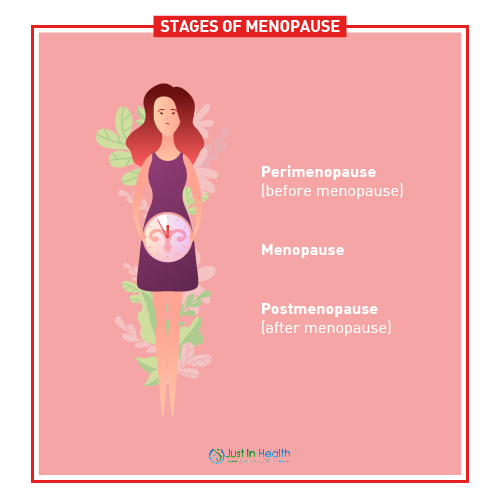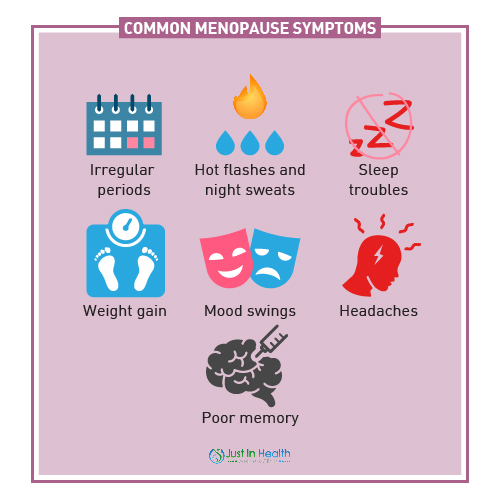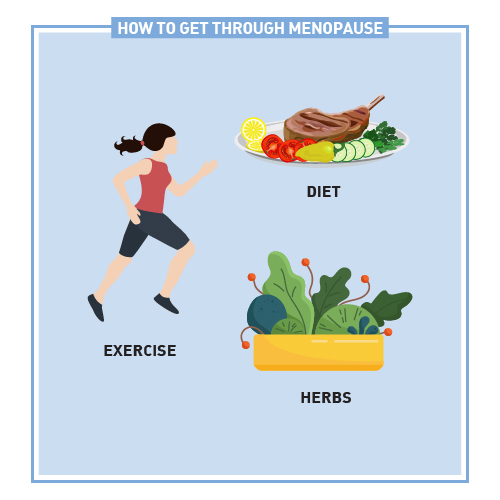Overcoming Menopause Naturally

By Dr. Justin Marchegiani
Menopause is an inevitable part of being a woman. Unfortunately, we only hear about the bad parts, so it is often something dreaded. Women all over the world and all across time have been going through menopause, and if you combine ancient wisdom with modern advances, this natural part of the aging process doesn’t have to be so scary!
Stages of Menopause

The three stages of menopause are:
- Perimenopause (before menopause)
- Menopause
- Postmenopause (after menopause)
Perimenopause can start as early as a woman’s mid-30s, Though perimenopause is typically expected around a woman’s late 40s, it can start as early has her mid-30s, particularly if she has suffered health issues such as eating disorders, cancer treatment, and surgery. Symptoms of perimenopause include irregular periods and spotting due to hormone shifts.
Menopause is the permanent end of a woman’s menstrual cycle and fertility, and officially starts once a woman has not had a period for 12 months. Menopause is a stage–it doesn’t continue for the rest of a woman’s life–and your body adapts over time. Each individual will experience a different length of menopause depending on their body and health. Postmenopause is the stage reached after menopause is over.
If you are experiencing menopausal symptoms, click here to work with a functional medicine doctor.
Common Menopause Symptoms
Perimenopause and Menopause have a wide array of overlapping symptoms. Some of the most common symptoms and complaints are:
- Irregular periods: especially during perimenopause, period may occur every 2-4 months and gradually start further and further apart.
- Hot flashes and night sweats: hormonal changes during this time can affect the hypothalamus, which controls body temperature. This can increase the body’s temperature, causing sweating, redness, and the infamous hot flashes.
- Sleep troubles: many women deal with sleep quality issues due to changing hormones and overheating due to hot flashes.
- Weight gain: metabolism slows, hormones change, and muscle mass is reduced–all of which contribute to increased abdominal fat and weight gain.
- Mood swings: constant fatigue and tiredness, increased irritability, anxiety and depression are all linked to the changing hormones and enzymes at this time.
- Headaches: migraines and headaches can be caused by the reduced blood flow, sleep deprivation, and anxiety of menopause.
- Poor memory: trouble concentrating and forgetfulness are effects of hormone shifts, which can be worsened by anxiety and lack of sleep.
What Causes Menopause Symptoms?
Hormones are a primary driver of menopause symptoms, particularly estrogen, testosterone, and progesterone. Estrogen hormones are secreted by the ovaries and are a large part of what gives a female her feminine qualities, including reproductive abilities. Progesterone prepares the uterus for pregnancy. Testosterone is a mostly male hormone, but it also has a place in the female body.
Menopause starts when the ovaries stop making lots of estrogen. Since estrogen plays such an important part in body processes, this change can affect mood, sleep, sex drive, body composition, memory, blood flow, and more. Menopause tends to start between the ages of 45-55 years.
How to Get Through Menopause

- Exercise:
- Besides helping with menopausal weight gain, exercise can increase serotonin, thereby boosting mood and improving sleep.
- Herbs:
- Herbs for menopause include: Red raspberry leaves, St. John’s wort, Ginseng, Evening primrose oil, Black cohosh, Chaste tree, Sarsaparilla, Red clover, Wild yams, and Licorice root.
- Research suggests American Ginseng can help relieve symptoms of menopause including hot flashes, fatigue, mood and memory problems, and vaginal dryness.
- Maca is an adaptogen herb which has been used for thousands of years to help with the symptoms of aging and stress by decreasing cortisol levels. Maca is good for helping with hot flashes, fatigue, weight gain, and libido.
- Vitex has been proven to help with hot flashes. It is also good for balancing hormones during menopause.
- Licorice Root supports the adrenal glands when cortisol levels are low. A primary compound in licorice root is glycyrrhizin (a substance that has a molecular structure similar to corticosteroids). As such, licorice root aids in hypoadrenalism by partially blocking the enzyme that converts cortisol to cortisone, thus sparing cortisol.
- Diet:
- Reduce sugar, carbs, and soy: These foods can mess with your hormones, your emotions, and your weight.
- Eat healthy fat: the Keto Diet is a great choice for menopausal women, especially to help with hormonal weight gain.
Takeaway
Good news: 80% of women report that menopause does not affect their quality of life! While menopause gets a bad rap, it is not a life sentence. By becoming aware of the changes in your body, you can make the best choices to get through menopause healthily & happily!
If you are experiencing menopausal symptoms, click here to work with a functional medicine doctor.
References:
https://www.ncbi.nlm.nih.gov/pmc/articles/PMC3659624/
https://www.ncbi.nlm.nih.gov/pmc/articles/PMC4834516/
https://www.ncbi.nlm.nih.gov/pmc/articles/PMC6419242/
https://www.ncbi.nlm.nih.gov/pmc/articles/PMC4890704/




